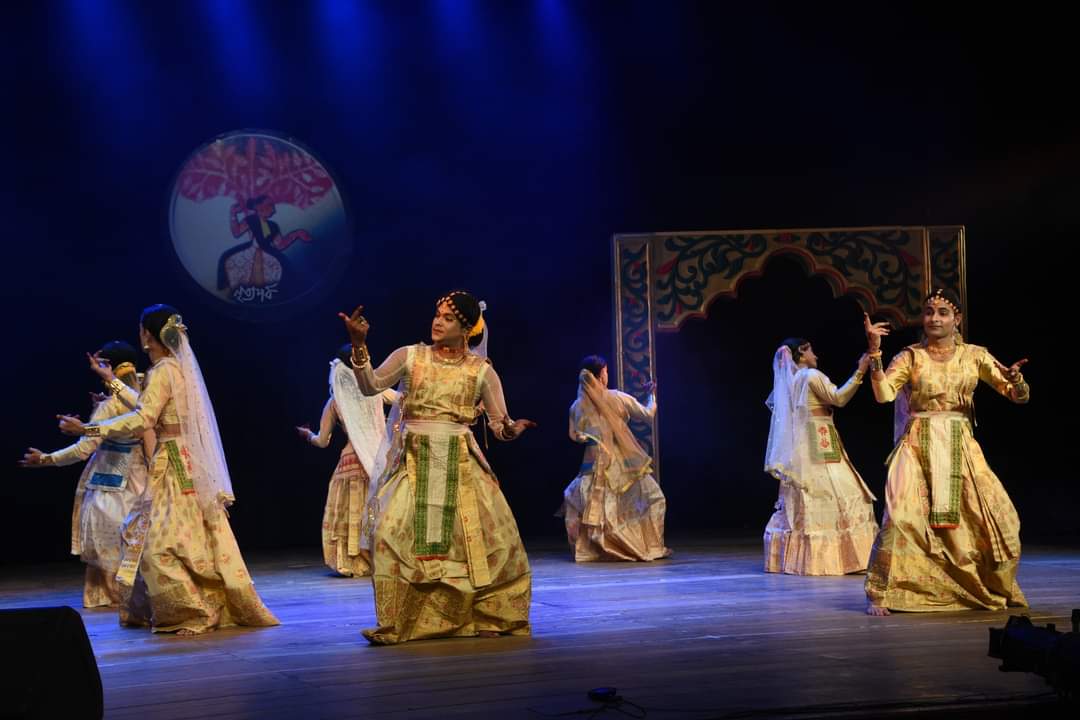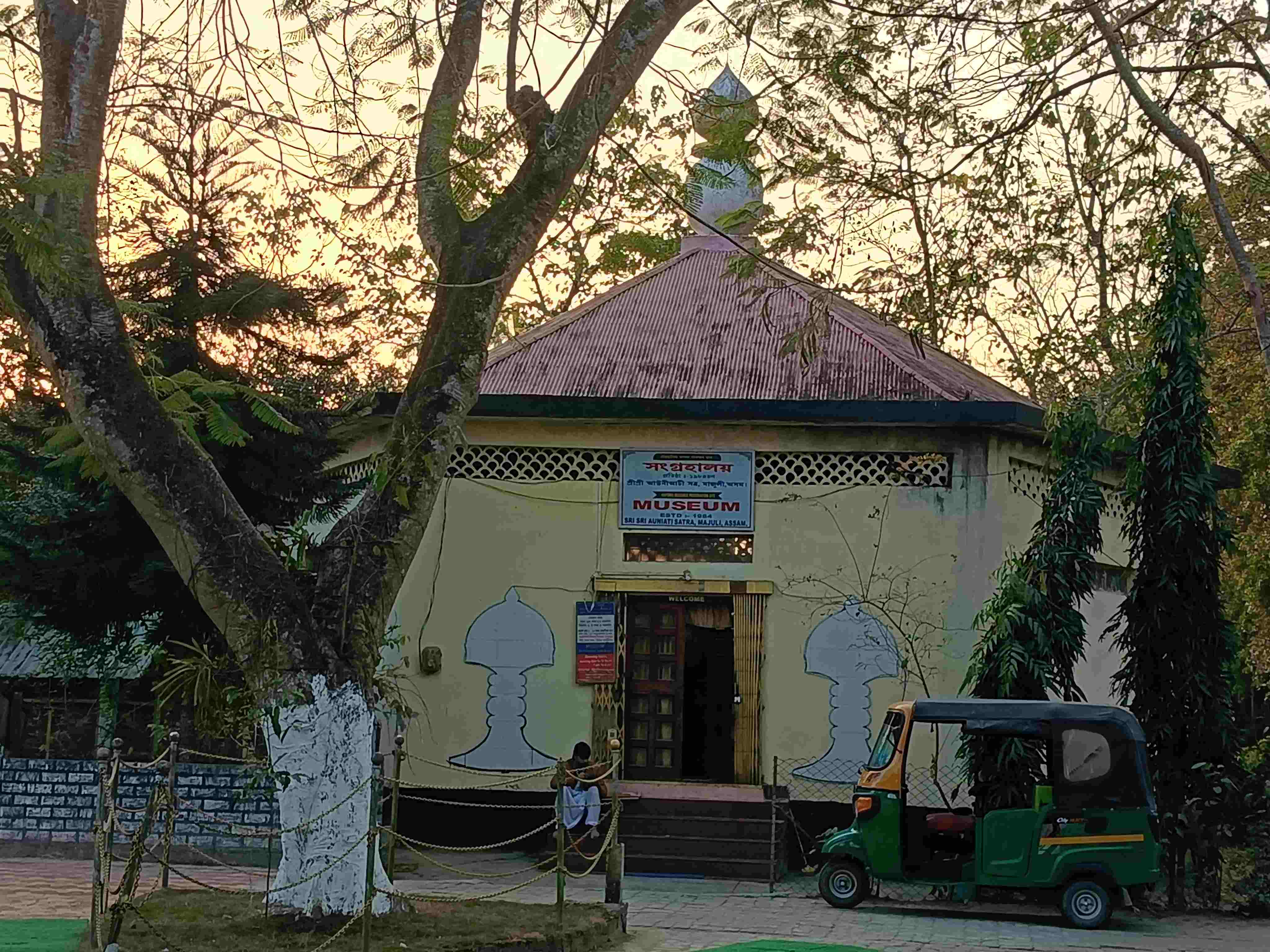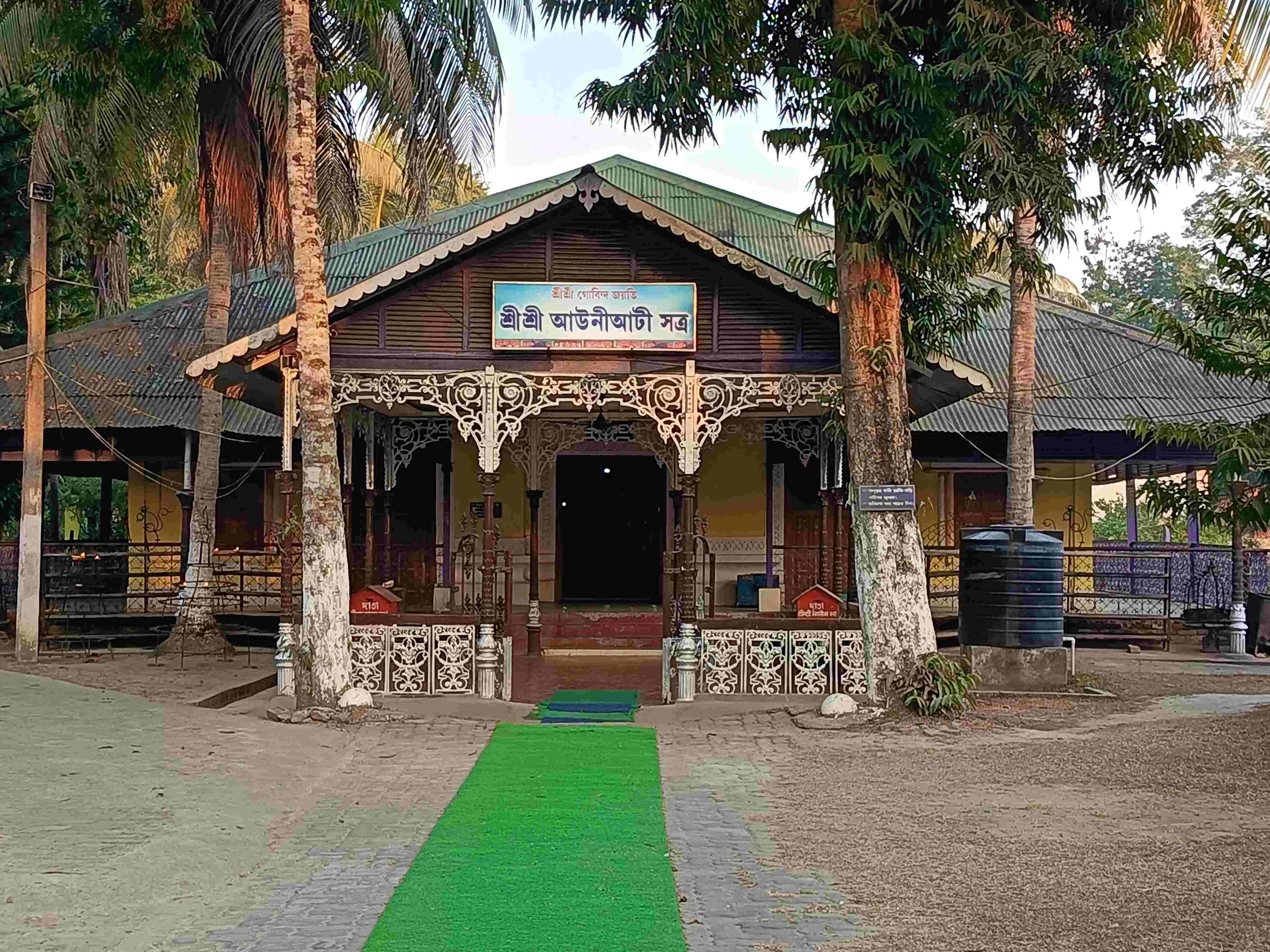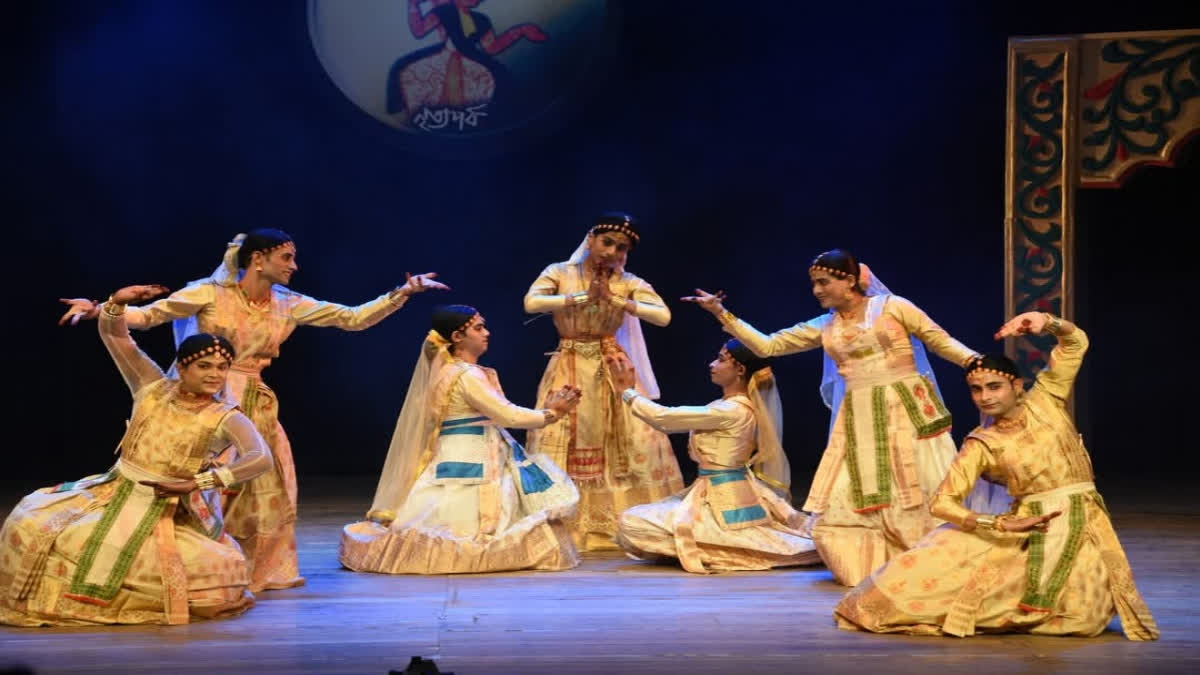Majuli (Assam) : For the first time, the congregation of visitors at the Maha Kumbh Mela at Prayagraj will witness the Sattriya culture from Assam in the form of drama, dance and music, accompanied by traditional Borgeet, played on instruments like the khol, cymbals, flute, violin, and dotara.
A 40-member team of Vaishnabs from the Aauniati Satra in Majuli will present the rich heritage of Sattriya culture through performances of Ram Vijay Bhaona, Diha Nam, and Apsara Dance, along with a Bhagawat recital. Highly lyrical yet devotional, the Paurashik Bhangi, the masculine style, and Stri Bhangi, the feminine style, will be showcased in the presentations.
“This is the first time we have been invited to perform and present our Sattriya culture at the Maha Kumbh Mela,” said Pitambar Dev Goswami, Satradhikar of Aauniati Satra. It may be mentioned here that the Satriya culture is a significant part of the cultural and religious fabric of Assam.

A Glimpse into Sattriya Culture
Sattriya culture, a vital part of Assam’s cultural and religious heritage, was introduced in the 15th century by Mahapurusha Srimanta Sankaradeva, a Vaishnava saint and social reformer. It was conceived as a community religious art form to propagate devotion to Lord Krishna through dance, drama, and music. The saint drew from ancient texts to create a systematic art form that blends religious philosophy with entertainment.
In 2000, Sattriya dance was recognized as one of India’s classical art forms. Today, it is celebrated for its expressive storytelling, depth into spiritualism, and intricate choreography.

Performances at the Maha Kumbh
The Vaishnabs from Majuli will perform Ram Vijay Bhaona, a devotional play penned by Sankaradeva, which narrates Lord Ram’s breaking of Haradhanu during Sita’s Swayamvar and his subsequent journey to Ayodhya. The act, steeped in philosophical and spiritual meaning, combines folk entertainment with Sanskrit drama techniques and live music, traditionally performed in prayer halls called Namghars.
The team will also perform Diha Nam, a form of congregational singing, and the Apsara Dance, both integral parts of Sattriya culture. These performances aim to give visitors at the Kumbh Mela a unique glimpse into Assam’s spiritual and artistic heritage.
“We are honored to represent Assam and Sattriya culture at such a prestigious platform. During our eight-day stay, we will also conduct a Bhagawat reading,” said Dev Goswami.

Cultural Exchange at a Global Gathering
The Maha Kumbh Mela, a congregation of ascetics, saints, sadhus, and pilgrims, offers a platform to celebrate and exchange diverse cultural and spiritual traditions. For Assam, the participation of Aauniati Satra marks a milestone in showcasing its Sattriya culture to a global audience.
The team will begin their journey to Prayagraj on January 31 and is expected to return to Majuli by February 10. The millennia-old sacred Maha Kumbh Mela is held once every 12 years at the site where the holy Ganges, Yamuna and the mythical Saraswati rivers meet. This year the Mela will be held from January 13 to February 26.
Read More



